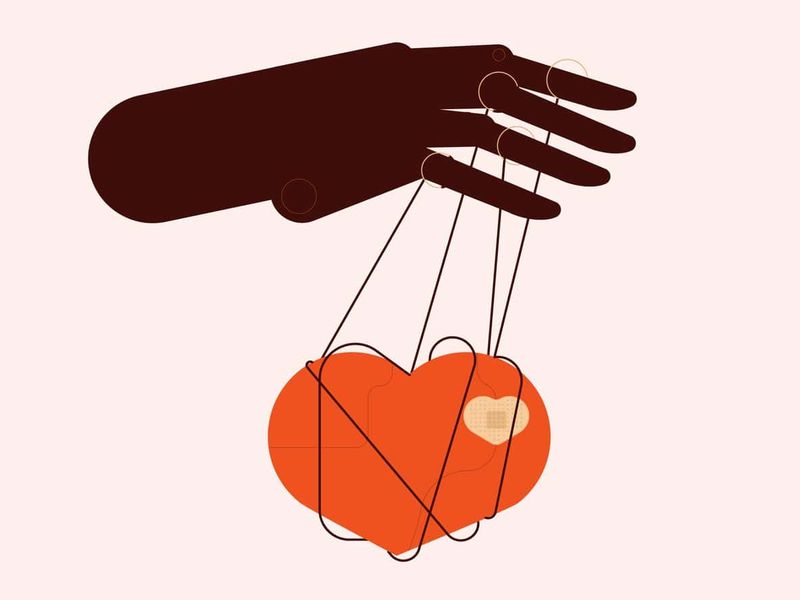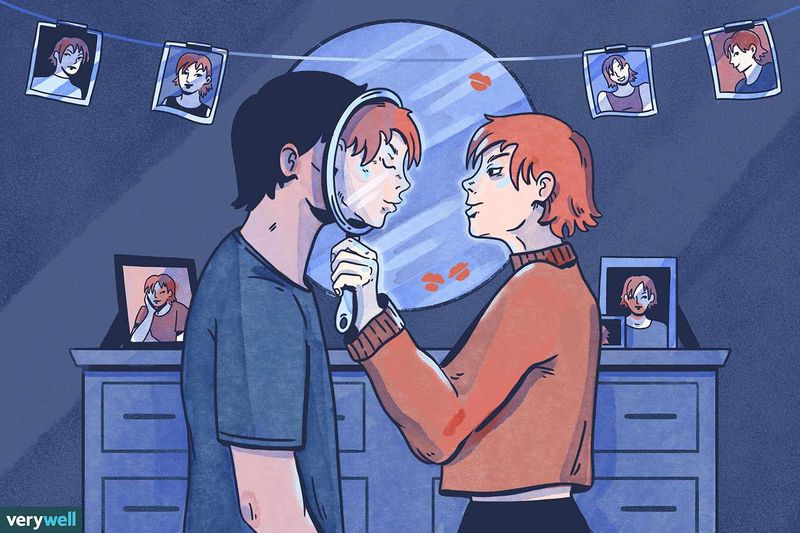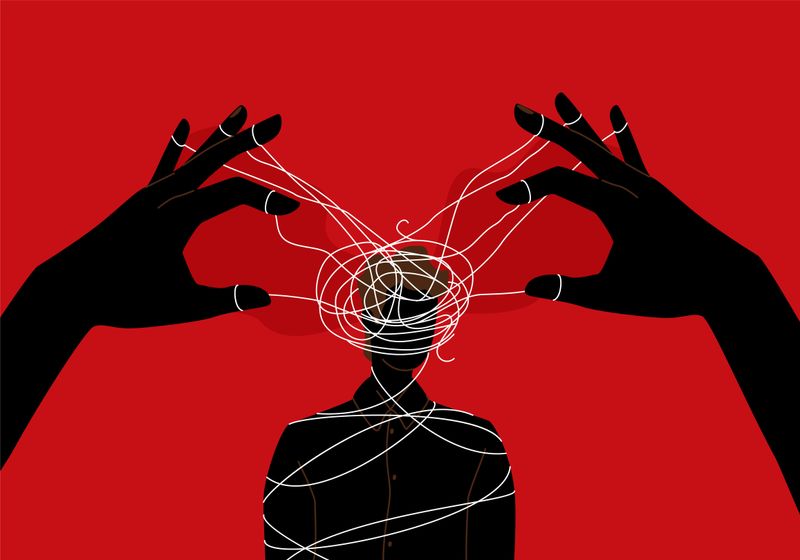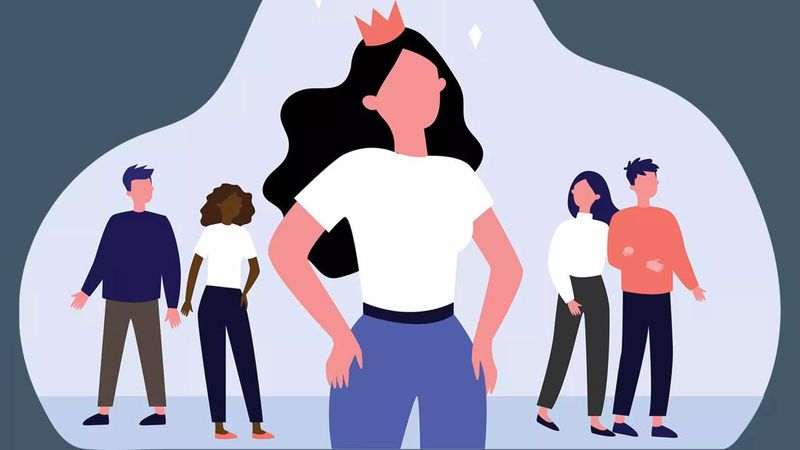It’s the question that keeps spouses of narcissists awake at night: “Did they ever really love me?” The highs felt real. The charm was magnetic. But the manipulation, the gaslighting, the emotional coldness—how does that exist alongside love?
The truth? Narcissists are capable of attachment, infatuation, and dependency—but their version of “love” is often conditional, self-serving, and emotionally unsafe.
Aquí tiene 20 insights and psychological explanations to help you understand whether a narcissist can truly love their spouse—and what that love actually looks like.
1. Narcissists crave admiration more than they give love
Picture this: a narcissist is like someone forever chasing their reflection in a pond. They long for admiration and want to be the center of attention. The spotlight is their happy place. But what they often miss is the give-and-take that genuine love requires. Their love is more about being adored than adoring someone back.
You might feel like you’re constantly pouring love into a cup with no bottom. It’s exhausting, right? The emotional investment you offer rarely gets reciprocated in a balanced way. Imagine trying to fill a sieve with water—no matter how much you pour, it never stays full.
That’s what loving a narcissist can feel like. They’re so focused on their need to be loved that they forget love is supposed to be a two-way street. So if you’re wondering why it feels one-sided, it might be because they’re more in love with being loved.
2. Control masquerading as love
Ever felt like a puppet on a string? That’s what love can feel like with a narcissist. To them, love often means, “You belong to me, you reflect me, you serve my needs.” It’s less about mutual respect and more about control. This isn’t the kind of love that sets you free; it’s the kind that boxes you in.
If you’re nodding along, thinking, “Yep, that’s exactly it,” you’re not alone. The sad truth is, for a narcissist, control and love can become tangled up like earbuds in a pocket. They might confuse them as one and the same. The spotlight isn’t on you as an individual, but rather how well you fit into their world.
So if you feel more like a possession than a partner, it might be time to check those strings. Remember, real love should feel liberating, not confining.
3. Empathy is the missing ingredient
Imagine baking a cake without flour—something crucial is missing, right? That’s what love without empathy is like. Narcissists often lack this key ingredient. They may say they love you when everything is going smoothly, but the moment you need emotional support, they’re MIA.
It’s like dealing with a fair-weather friend who only shows up when it’s sunny. When you dive deep into their world, you’ll find that love becomes performance-based. You get love when you please them, and coldness when you don’t. Without empathy, love is conditional, like a subscription service you have to keep renewing.
This can leave you feeling unimportant, as if your needs and feelings don’t matter. True love thrives on empathy and understanding; it’s the glue that holds relationships together. If you’re not feeling that, it might be because empathy was left out of the mix.
4. The fantasy versus reality trap
Narcissists have this magical way of creating a fantasy world that draws you in. The problem is, they love the fantasy version of you, not the real, messy, evolving person you are. It’s like they’ve cast you in a movie where you’re the perfect partner, but the script never changes to accommodate real life.
They idealize you at first, but when your human flaws start to show, they don’t know how to handle it. Suddenly, you’re not the superstar they imagined. It’s like being put on a pedestal only to be knocked down when you show you’re human.
If you’ve ever felt punished for being yourself, it might be because they’re more in love with the idea of you. This love can feel like a never-ending audition, where you’re trying to fit a role that wasn’t written for real people.
5. Emotional supply over connection
Think of a narcissist as someone who needs a constant charge to their emotional batteries. They crave emotional supply more than genuine connection. Relationships for them are like a buffet—more about what they can get than what they can give.
Picture this: you’re providing a feast of emotional support, but they’re never satisfied. They stay in relationships that feed their ego but starve their soul. You might feel like you’re always giving but never truly connecting. It’s exhausting, like shouting into a void and expecting an echo.
If you’re questioning why the relationship feels so one-sided, it might be because they’re more interested in what you provide than who you are. Real love should feel like a two-way street, filled with connection, not just a pit stop for one-sided supply. If you’re feeling drained, it might be time to reassess the emotional give-and-take.
6. Love as a weapon
Have you ever felt like love was being dangled over your head like a carrot on a stick? That’s what it’s like when a narcissist uses love as a weapon. They withdraw affection as a form of punishment, making you question your worth. It’s like being on a rollercoaster where the highs are blissful, but the lows are devastating.
Real love doesn’t vanish when things get tough; narcissistic love often does. Imagine someone flipping a switch on and off at will—that’s how unpredictable their love can feel. You’re left walking on eggshells, trying to avoid doing anything that might cause the switch to flip.
This kind of love leaves you feeling anxious and unsure, constantly questioning what you did wrong. Remember, love should be a sanctuary, not a battlefield. If it feels like the latter, it might be time to reevaluate.
7. Conditional affection based on feelings
Picture a set of scales, tipping based on how adored a narcissist feels. When they feel admired, their affection flows like a river in spring. But when they feel criticized, the flow turns to ice. It’s a love that’s conditional on the temperature of their ego. You might feel adored one moment and ignored the next.
It’s like weather in the mountains—constantly changing, leaving you unsure whether to expect sunshine or storms. It’s challenging to find stability in a relationship where love is a reward for making them feel good. If you’ve ever felt like their affection is a prize for good behavior, you’re not imagining it.
Love shouldn’t feel like a game with shifting rules. It should be a consistent presence, a force you can rely on regardless of the emotional weather. If it’s not, it might be time to seek shelter.
8. The repetitive relationship cycle
Imagine being stuck on a merry-go-round that never stops. That’s what it’s like to be in the repetitive cycle of a narcissistic relationship. First, you’re idealized and put on a pedestal. It’s thrilling, like the first bite of your favorite dessert. But then comes the devaluation, where suddenly nothing you do is right.
It’s confusing, like trying to solve a puzzle with missing pieces. Finally, you’re discarded, only to be hoovered back in when they’re ready to start the cycle again. None of this aligns with secure, lasting love. It’s a pattern that leaves you dizzy and disoriented, questioning what’s real.
If you’ve ever felt like you’re trapped in a loop, it might be because these patterns are hard to break. Real love should feel like a steady journey, not a ride you can’t get off. If it’s making you dizzy, it might be time to step away.
9. Emotional needs as a burden
Have you ever felt like your emotions were too heavy for someone else to carry? That’s often how it feels to have needs in a relationship with a narcissist. When your feelings arise, they might seem annoyed or burdened, as if your emotions are unwelcome guests.
It’s like being told to pack light for a long journey—your needs are seen as excess baggage. You might feel guilty for needing support, like you’re asking for too much. This can leave you feeling isolated, as if you’re living on an emotional island. Love should welcome your feelings and provide a safe space for them.
If you’re feeling like you have to hide parts of yourself to keep the peace, it might be because your emotions are seen as burdens rather than opportunities for connection. Remember, love should lift you up, not weigh you down.
10. Words without emotional backing
Ever heard words that felt as empty as a deflated balloon? That’s what it’s like when a narcissist says “I love you” but doesn’t back it up with actions. It’s easy for them to mimic love through words, but emotional consistency? That’s another story.
Imagine hearing a beautiful melody with no sound—it’s all show, no substance. They might say the right things, but when it comes to supporting you through tough times, they’re nowhere to be found. It’s like expecting a safety net that disappears when you need it.
This can leave you feeling unsupported and questioning the sincerity behind their words. Real love shows up when it matters, providing a steady rhythm in the symphony of life. If those words feel like hollow echoes, it might be time to look for a love that resonates. Remember, actions speak louder than words.
11. Self-serving love
Picture love that’s like a boomerang—it always comes back to the giver. Narcissists have a hard time loving in a way that doesn’t benefit them. If it doesn’t feed their image or ego, they’re less likely to engage. It’s like a spotlight that only shines on them, casting everyone else in shadow.
You might feel like an extra in their story rather than a co-star. This love is transactional, where the focus is on how you serve their needs. If you’ve ever felt like your worth is tied to their benefit, you’re not alone. Real love illuminates both people, allowing them to shine together.
It’s a shared journey, not a solo performance. If you’re feeling overshadowed, it might be time to find someone who sees you as the main character in your own life. Remember, love should be about partnership, not possession.
12. A lack of intimacy and vulnerability
Think of intimacy as a dance that requires two willing partners. For narcissists, vulnerability is like dancing on a tightrope without a net. They’re often incapable of opening up because it threatens their sense of control. Picture a fortress—impenetrable and isolated. This is what their version of love can feel like.
You might feel like you’re trying to scale walls that have no doors. Real intimacy requires showing up, even when it’s uncomfortable. If you’ve ever felt like you’re the only one trying to bridge the gap, it might be because they’re running from the very thing that makes love real.
This lack of vulnerability can leave you feeling disconnected, as if you’re sharing space with someone who’s only half-present. Remember, love should feel like a warm hug, not a cold shoulder. If you’re always reaching but never touching, it might be time to rethink things.
13. Viewing a spouse as a possession
Have you ever felt more like a trophy than a partner? Narcissists often view their spouse as an extension of themselves, not as a separate individual. It’s less about partnership and more about possession. Imagine being a prized artifact in a collection—you’re valued for what you represent, not for who you are.
This kind of love can feel suffocating, as if you’re trapped in a glass case. You might feel overlooked, as if your own dreams and desires don’t matter. Real love should celebrate you as an individual, recognizing your unique qualities and supporting your growth.
If you’ve ever felt like your worth is tied to someone else’s identity, it might be because you’re seen as a part of their image rather than a person. Remember, love should be about building each other up, not boxing someone in. Seek a love that lets you breathe.
14. Short-term passion, long-term disinterest
Think of falling in love with a narcissist like watching fireworks—dazzling at first but quick to fade. They’re capable of short-term passion but struggle with the long-term emotional work that relationships require. It’s like a sprint with no marathon.
You might experience intense moments of love, but when the initial excitement fades, so does their interest. It’s a cycle of highs and lows, leaving you wondering where the passion went. This love can feel fleeting, like trying to catch smoke with your hands.
If you’ve ever felt the spark fizzle out too soon, it might be because they’re not equipped for the endurance true love demands. Real love is more than a fleeting flame; it’s a steady warmth that sustains. If you’re longing for something lasting, it might be time to find someone willing to run the distance with you.
15. Love with a price tag
Ever felt like love comes with a receipt? That’s what it’s like when love feels transactional. For narcissists, it’s not “I love you no matter what,” but “I love you because you do __ for me.” Imagine a love that’s more about checks and balances than emotional bonds.
You might feel like you’re constantly trying to meet some unstated quota to earn affection. This kind of love can feel like a business deal, where everything is calculated and nothing is unconditional. If you’ve ever questioned why love feels like a transaction, it might be because they’re keeping score.
Real love should feel like a gift, given freely and without strings attached. If you’re feeling like you’re paying for something that should be free, it might be time to find a love that doesn’t come with terms and conditions. Seek a love that’s beyond measure.
16. Limited love, big claims
Picture this: a megaphone amplifying empty promises. Narcissists might believe they love you, but their definition of love is often limited and self-focused. It’s like listening to a song with great lyrics but no melody. They aren’t lying when they say they care, but their care often revolves around their needs, not yours.
If you’ve ever felt like their love is more about words than actions, you’re not alone. This love can feel hollow, like an echo in a vast, empty room. Real love should fill the space with warmth and connection, not leave you feeling alone amidst grand declarations.
If their claims feel like echoes instead of symphonies, it might be time to seek a love that resonates with harmony. Remember, love should be a duet, not a solo performance. Look for someone who shares the stage with you, not just the spotlight.
17. Sabotaging intimacy when it gets real
Have you ever felt the warmth of love turn icy cold? That’s often what happens when intimacy gets too real for a narcissist. They may start strong, but when emotional closeness threatens their fragile control, they pull away. It’s like feeling the sun on your face only for clouds to suddenly cover the sky.
This love can leave you feeling abandoned just when you thought you’d found a safe harbor. If you’ve ever wondered why they retreat as soon as things get deep, it might be because vulnerability feels like a threat. Real love embraces intimacy and grows stronger through it.
If you’re feeling like you’re chasing a mirage that vanishes upon approach, it might be time to find love that stands firm, even when the emotional tides rise. Remember, true intimacy doesn’t freeze you out; it invites you in.
18. Healing is the key to true love
Imagine a journey that leads to a door of light and warmth. For narcissists, truly loving someone requires stepping onto this path of healing. It’s not impossible, but it demands insight, accountability, and often therapy. Many never get there, stuck at the gate, unwilling to take those steps.
If you’ve ever thought they could change if they just tried, you’re hopeful, but remember it’s their journey to make. Real love requires growth and effort, much like tending a garden that needs constant care. If you’re waiting for them to open that door, it might be time to focus on your own path.
True love is possible, but it begins with self-awareness and healing. If you’re looking for a love that’s grounded in reality, find someone who’s willing to walk that path with you, step by step. Remember, healing opens the door to possibilities.
19. The Echo of Emotions
With a narcissist, emotions often echo rather than resonate. They may mimic the emotions of their spouse to maintain the semblance of a loving relationship. This echo effect can create a sense of connection but without the depth that genuine empathy provides.
The spouse often finds themselves pouring emotions into a void, receiving only reflections in return. This lack of authentic emotional reciprocity can lead to feelings of loneliness and misunderstanding, despite outward appearances of a loving partnership.
For a narcissist, emotions are tools rather than genuine feelings. The spouse’s emotions are mirrored to sustain the relationship facade, but this mimicry is rarely sustained with the sincerity needed for true emotional intimacy.
20. The Self-Centric Universe
In a narcissist’s self-centric universe, their spouse often orbits them like a satellite, caught in the gravitational pull of their self-importance. The spouse may feel cherished during fleeting moments when they align with the narcissist’s needs.
However, this alignment is often temporary, as the narcissist’s focus quickly shifts back to themselves. The spouse may feel an overwhelming sense of isolation despite being physically present in the relationship.
True love requires mutual respect and attention, which is difficult to achieve when one partner demands the spotlight. The spouse is often left navigating a universe where their needs and feelings remain secondary.





















